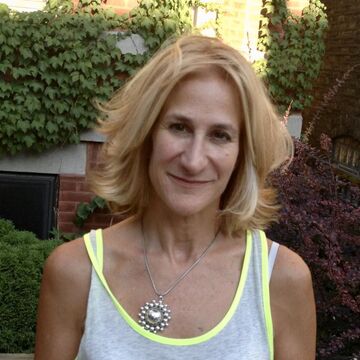

Anne Calcagno
Professor, Adjunct
Contact
Bio
Instructor, Writing (2005). BA 1970, Williams College, Williamstown; MA, MFA, 1984, University of Montana, Missoula. Books: Pray For Yourself and Other Stories; Travelers Tales: Italy. Publications Fiction: North American Review; TriQuarterly; Other Voices; Denver Quarterly; Epoch. Publications Nonfiction: The New York Times, Chicago Tribune, New City, The Saudi Gazette. Anthologies Fiction: The Milk of Almonds: Italian American Women Writers; Don't Tell Mama: The Penguin Book of Italian American Writing; American Fiction; Fiction of the Eighties. Anthologies Nonfiction: Thirty Days in Italy; Whose Panties Are These?. Awards: NEA; San Francisco Foundation; Illinois Arts Council; ForeWard; JourneyWoman.
Experience at SAIC
I teach short story and creative non-fiction writing workshops. And generative seminars, such as: The American Dream in the American Short Story; Novel Construction ? How Form Yields Meaning; or Travel Writing; the Ego & the Id Abroad. bells hooks' "liberatory pedagogy" is my lodestar. She writes: "...the classroom is and should be a place where there is a sense of struggle...to overcome…estrangement and alienation... engaging in a learning process that makes the world more, rather than less, real." I believe reading and writing are inseparable, and that potent writing has been passionately, revised. In George Saunders' words, this writing's "sentences [have] been the subject of so much concentration, they become things in the world instead of attempts to catalog it." I love classes with students from multiple departments for the differing insights and practices they bring to bear on writing.
Who do I read? John Steinbeck, Rose Tremain, Lorrie Moore, Teju Cole, H.G Carrillo, Pico Iyer, David Quammen, Susan Orlean, Katherine Boo, Jhumpa Lahiri, Italo Calvino, Natalia Ginzburg, Franz Kafka, Elizabeth Strout, Mary Webb ? and more. Certainly never enough.
Personal Statement
I began at SAIC in the Liberal Arts Department in 1991, part-time, with a new baby at home. In 1993, I was hired, as a fiction writer, to a tenure-track position at DePaul. I earned tenure and remained until 2005. But I was struggling with the pressures of a second child, multiple committees, multiple classes, no writing time. And the strange recognition that being a writer was viewed as secondary to being an academic. I made one of the most difficult decisions of my life, and resigned my tenure. Lost its security, a solid salary, and what I had long worked for and dreamed of. In a stroke on good luck, I was hired to teach in the MFAW in Writing at SAIC. What astonished me was, and continues to be, not only the collegiality of my fellow writer-professors, but the discovery that to be surrounded by artists is to put the art of writing in its proper perspective, as art-making and invention—ever a struggle. It is a gift to be surrounded by those for whom imagination is life blood.
Current Interests
In my first book, the short story collection, Pray For Yourself, I explored female characters who silence themselves, intent on the question; why? My second book, a novel, Love Like a Dog, led me to pit bulls, animal shelters, and into the home of a boy and his single father, probing how our relationship to other animals undoes or exalts our humanity. I am currently in the middle of a large historical novel, Struck By Dina, which explores the Italian colonization of East Africa through the lens of one family; I am trying to understand the culpability of individuals in the midst of large historical moments; how much can we claim to be innocent? How much are we guilty? Please visit my website to understand my life in writing in more depth.